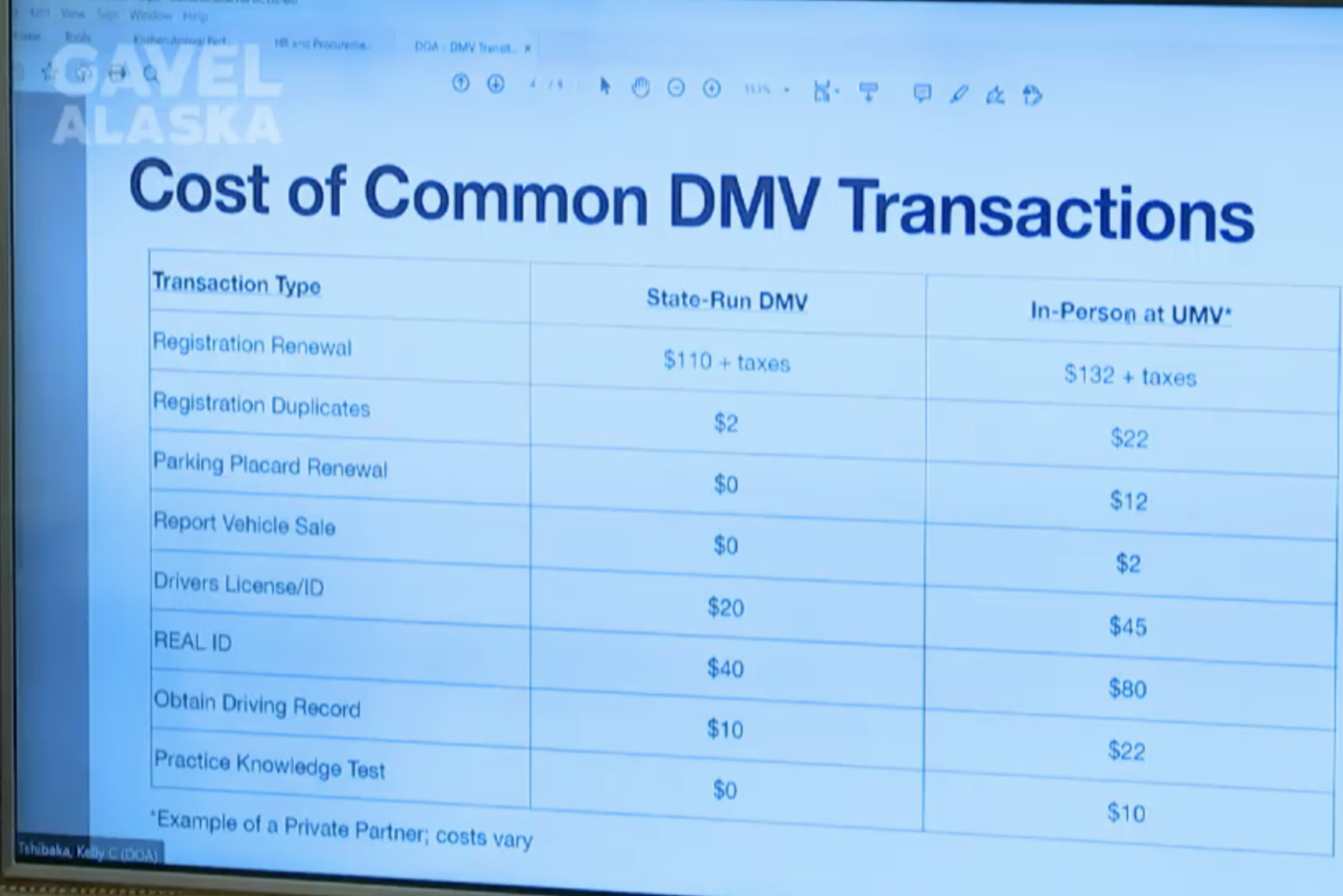Dunleavy commissioner steers conversation away from DMV sniping by state contractor
The state-funded “FirstHand” podcast quoted DMV bashing from a company owned by the family of Health Commissioner Adam Crum before Commissioner of Administration Paula Vrana steered the conversation back to safe territory and praised the contractor.
UMV, owned by Crum’s family, is one of the state’s so-called “private partners” for vehicle registrations and other services. UMV charges higher rates than the Division of Motor Vehicles.
On its website, UMV ridicules DMV as inefficient. It does not say that UMV charges higher rates for its services than DMV.
“Recently an outfit popped up called the UMV,” Patty Sullivan, one of Gov. Mike Dunleavy’s new public relations people, said to Administration Commissioner Paula Vrana on the podcast.
“They describe themselves as the very embodiment of lickety-split. If you’re the kind of person who has time to spare and can happily wait several hours to be seen, to get seen they say, at the DMV, then we are not for you,” Sullivan said.
“I imagine you have some pushback on that,” Sullivan said to Vrana.
“Well yes, because our current wait times are down to around 10 minutes,” said Vrana.
She quickly turned the conversation toward praising the private companies that are handling DMV work.
“However, we embrace, we do embrace our third-party partners across the state,” she said.
They “fill a great role and provide great options for Alaska,” Vrana said.
UMV, LLC is owned by Einar and Krista Gonder, relatives of health commissioner Adam Crum, and part owners of the Crum family business, Northern Industrial Training. The company opened in 2007 as Alaska Tags & Titles LLC, owned by the Crums.
One of the biggest problems with DMV services right now is that one-fifth of its positions are vacant, which reduces the level of customer service.
“So 21 percent of our positions are open, we have no employees sitting in those spots. So that has a real impact on our ability to process paperwork, to see customers every day. It has an impact on our wait times. It just really, really slows things down and inhibits our ability to work as well as we could or should be working.
“And really, I think COVID definitely played, or plays actually a part in that.”
The commissioner offered no solutions for filling the empty positions.

